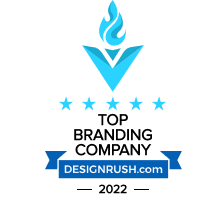-
Event Marketing: A Timeline For Success
Posted by Sean Bain on May 10th, 2018 
There are many components to consider when launching a successful recruitment event, and it’s easy to feel overwhelmed by all the details. That’s why you need a solid, properly executed plan in place well in advance of your event—and a team of experts to help ensure your success throughout the process. So, where do you start? What are key factors to consider at varying stages of your recruitment event?
Who
The first step is to identify your audience. The event should be geared toward the needs and interests of that particular target candidate. Are you a regional healthcare provider seeking RNs in a particular specialty? A national restaurant needing to hire for all positions? Each audience requires its own unique approach and will help determine event details.Why
Also think about why you are holding this event. Do you have numerous openings within just one role to fill due to an expansion? Are you staffing up for multiple different jobs at a brand new location? Are you trying to attract experienced hires due to retirements? The “why” can help you determine the right type of event and solidify the details of what will take place during the event (tours, speakers, interviews).What
The next step involves determining what type of event you will hold (informational, job fair, meet & greet, virtual career fair, etc.) and establishing your budget, which will dictate the most effective tactics in promoting and hosting your event. Key points to consider:- Define your marketing needs for the event and develop a media plan to promote participation. NAS can work with you to determine the most effective strategy (radio, events calendar on your career site, email, direct mail, display ad, stand-alone landing page, career site messaging, PPC, text campaign, Facebook promoted post or custom event page, geo-targeting or any combination of a number of tactics), develop consistent messaging across your campaign and track the results of your efforts.
- Is the registration process easy for candidates? Are they required to RSVP in advance or apply online first for the job opening? Are you targeting people in the right place? Quick examples: LinkedIn is a better choice to target mid-career engineers than Facebook, just as entry-level warehouse candidates may best be reached via a print ad requesting in-person or phone application.
- Will you need brochures or table tents at your event? Company swag (embossed pens, travel bags, etc.)? Are you hosting a giveaway or raffle? Are you using existing artwork for your promotion, or do you need new creative content developed? It’s important to allow adequate time to secure the necessary collateral in order to ensure that important elements of the campaign are in place well in advance of your event (eight weeks is recommended).
“A goal without a plan is just a wish.” ― Antoine de Saint-Exupéry
When
As in life, timing is everything. As you select a date and time for your event, it’s vital that you keep your audience in mind. For example, a weekend event might make sense if you are targeting candidates who already have a weekday job. If you’re targeting day shift RNs, hold your event in the evening so they can attend after work. As restaurant employees rarely have a set work schedule, a virtual event (online only) may be your most effective targeting method. Think about your target and plan accordingly.Timing is also important for event promotion. Are you sending direct mail cards to personalized attendees? Better get those cards shipped in time to give candidates at least a week before the event (two weeks is recommended) to make plans. Conversely, you don’t want to run a radio spot too far in advance so that listeners are not able to recall the details.
Where
As in real estate, it’s all about Location, Location, Location. Here, we focus on the key goal of your event: optimal attendance. A few points to keep in mind when considering a venue:- Can you hold it on your own site, allowing candidates to see your working environment, or does it make more sense to have the event offsite at a hotel, restaurant or other venue?
- Are there any special instructions that attendees need to know about, such as paid parking or construction reroutes?
- If you’re hosting a guest speaker, do you need audio/video equipment rental or breakout rooms for session attendees?
- If you’re hosting a Happy Hour Meet & Greet, for example, light appetizers and cocktails are expected. If your event is not being hosted in a restaurant, have you arranged for off-site catering?
Bonus W: What happens after?
Post-event follow-up is an important component in your marketing efforts. A few housekeeping items include removing your content/hosting of materials from online and on-site channels; encouraging continued “word of mouth” referrals from your own staff; and most importantly, reaching out to participants to thank them for their time and attendance.Your reputation as a company is a living entity that doesn’t stop when your recruitment event is over. In fact, it may have just begun.
Sean Bain

